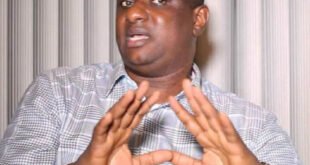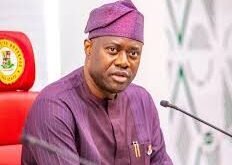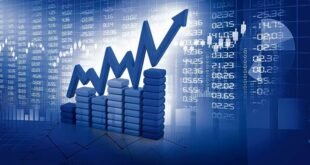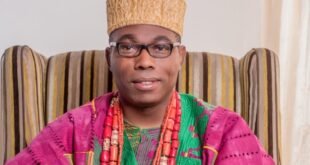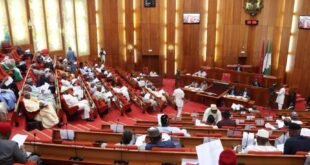The president has greatly rejected this new statement made by the President of the African Development Bank (AFDB) who will come out, Dr. Akinwumi Adesina, who claimed that Nigerians were economically worse today than in the beginning of independence in 1960.
Adesina made a controversial statement while delivering the main speech at the 20th anniversary of Hill Denham Chapel in Lagos.
In his speech, he stressed that the current Nigerian GDP per capita of $ 824 marked a sharp decline of $ 1,847 in 1960, showing a deep regression in the country’s economic welfare.
However, the president, through a statement issued on Sunday by a spokesman for President Bayo Onanuga, challenged the data and conclusions presented by the Head of AFDB.
Describe the figures of Adesina as “inaccurate,” Onanuga argues that they are inconsistent with verified historical records.
“According to the available data, Nigerian GDP in 1960 was $ 4.2 billion, and per capita income for a population of 44.9 million was around $ 93 – not $ 1,847 quoted by Dr. Adesina,” Onanuga said.
He further explained that significant economic growth did not occur until the oil explosion in the 1970s, with GDP reaching $ 12.55 billion in 1970 and eventually rose to $ 164 billion in 1981. In fact, per capita income only peaked briefly at $ 2,187 in 1981 before declining again. Only in 2014, after the large GDP rebasing exercise, Nigeria reached high per capita income of all time of $ 3,200.
Also read: Catholic Secretariat To Verify the Papal Image of Trump produced by AI before the official response
Outside denied the numbers, the president also questioned the use of GDP per capita as an independent measure of national progress. Onanuga notes that while GDP per capita is a useful economic indicator, often fails to reflect a broader aspects of development such as inequality, distribution of wealth, and the scope of informal economic activities, very relevant factors in the context of Nigeria.
“Assessing the progress of a country only through GDP lenses per capita can be misleading,” Onanuga said. “That does not capture human reality, nor does it recognize progress in infrastructure, health care, education, and technology.”
The Presidential refers to the real improvement in the main sectors since independence, including extensive access to digital technology, dramatic expansion in road networks, and exponential growth in schools and health care facilities. Highlighting the success of cellular telecommunications, Onanuga contracted state access that was almost universal to mobile phones at this time with less than 20,000 housing telephones available at Independence in 1960.
“MTN, for example, was successful in Nigeria despite previous doubts based on GDP metrics. This underlined the limitations to rely on those numbers,” he added.
While recognizing some economic challenges raised by Dr. Adesina, such as policy inconsistencies, weak institutions, and excessive dependence on oil, presidency urges commentators and analysts to adopt a more nuanced and holistic approach to evaluate Nigeria’s progress.
Adesina, in his speech, had called for a fundamental transformation from the Nigerian economic structure. He warned that without deeper industrialization and investment in the main sectors, the country’s ambitions to be competitive globally in 2050 would remain difficult to understand.
Join the conversation
Supports Nigeria’s ripples, resistant Journalism Solutions
A balanced and fearful journalism that is driven by data comes with enormous financial costs.
As a media platform, we ask for leadership accountability and will not trade the right to suppress freedom and freedom of speech for a piece of cake.
If you like what we do, and ready to uphold journalism solutions, friendly Nigerian ripples cause.
Your support will help ensure that residents and institutions continue to have free access to credible and reliable information for community development.
Donation now
 JamzNG Latest News, Gist, Entertainment in Nigeria
JamzNG Latest News, Gist, Entertainment in Nigeria

